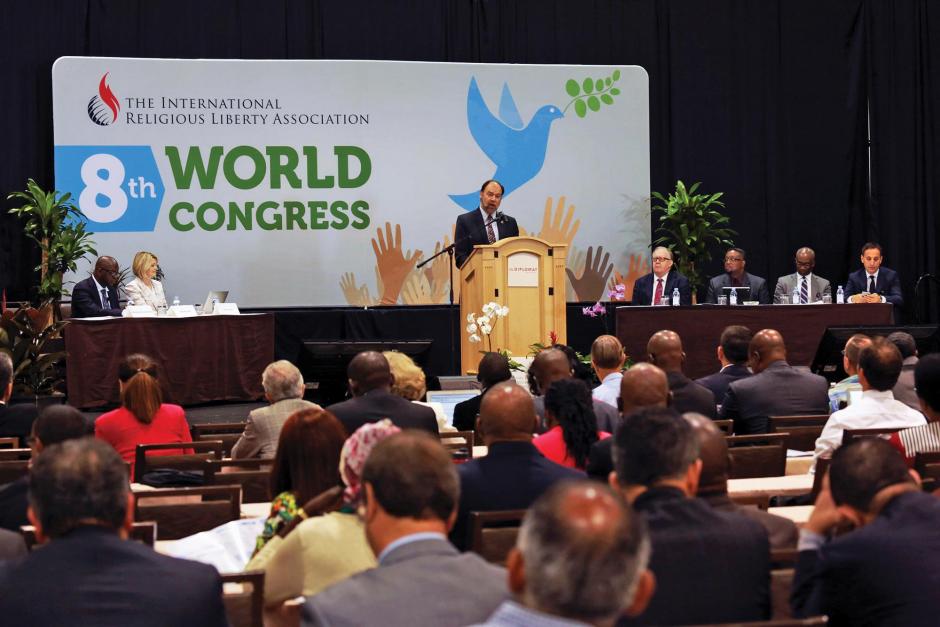Exploring the Global Challenge
Bettina Krause November/December 2017The Eighth IRLA World Congress
Now, more than ever, we need a holistic understanding of religious freedom.” These words from Ganoune Diop, Secretary General of the International Religious Liberty Association (IRLA), summed up one of the key objectives of a unique international gathering of religious freedom advocates held August 22 to 24 in Hollywood, Florida. The IRLA’s 8th World Congress on Religious Freedom brought together more than 550 scholars, public officials, religious leaders, and advocates from 64 countries. The event aimed to take a multi-disciplinary look at the relationship between religious freedom and the challenge of nurturing peaceful coexistence in today’s religiously and politically fractured global landscape.
More than 30 speakers, representing a range of different academic and religious perspectives, explored religious freedom as more than just a constitutional or legal principle; rather as a concept intimately linked with other fundamental human rights and with a whole range of economic, social, political, and cultural realities.
Ambassador John Nay, IRLA President, challenged attendees to see the task of building stable, peaceful communities as central to the quest for religious freedom. Both must come together, he said because “without freedom of religion there will not be peaceful coexistence, and without peaceful coexistence it is not possible for freedom of religion to thrive.”
Other speakers echoed the call for a broader, more innovative approach to promoting religious freedom. “We can’t keep doing the same things over and over again; it’s not working,” said Brian Grim, founder and president of the Religious Freedom & Business Foundation, in an interview after his keynote presentation on the first day of the Congress. Grim, a social scientist and former lead researcher at the renowned Pew Research Center gave a broad overview of the state of religious freedom around the world. He pointed to statistics showing that 40 percent of the world’s countries have high levels of restrictions on religious freedom or freedom of belief—restrictions that stem from either government control of religion, or from social hostility toward religious minorities.
On the final day of the Congress, attendees voted a resolution that called, in part, for greater efforts to promote religious freedom as a fundamental human right, and for religious leaders and believers to recognize and combat the danger of religion being hijacked and misused for non-religious goals.
Among the diverse line-up of speakers were Asma Uddin, director of strategy for the Center for Islam and Religious Freedom; Knox Thames, Special Advisor for Religious Minorities in the Near East and South/ Central Asia at the U.S. Department of State; Richard Foltin, director of national and legislative affairs for the American Jewish Committee; David Little, retired Harvard Divinity School Professor and research fellow at Georgetown University’s Berkley Center; Cesar García, General Secretary of the Mennonite World Conference; Miroslav Volf, founder and Director of Yale Center for Faith and Culture and professor at Yale University Divinity School; Carol Palmer, Permanent Secretary at Jamaican Ministry of Justice; and Ted N.C. Wilson, president of the Seventh-day Adventist world church.
The Congress, held every five years, is organized by the IRLA as a way to strengthen connections between religious freedom advocates from different countries, and to gather fresh perspectives on critical issues and challenges. For the first time, the IRLA will publish a book bringing together key presentations from the Congress. Videos of plenary presentations are available on the IRLA website at www.irla.org under “Congress Resources.”
Article Author: Bettina Krause
Bettina Krause is the editor of Liberty magazine.
